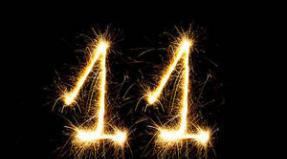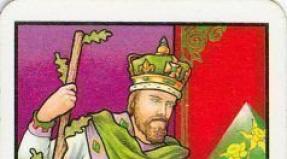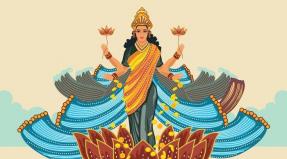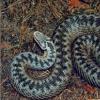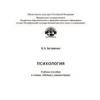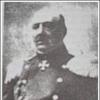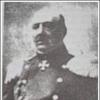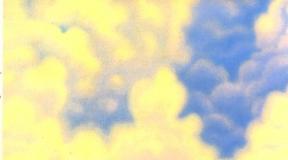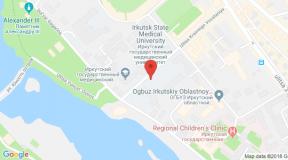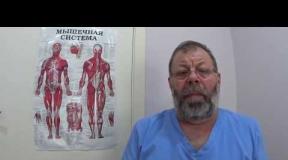The meaning of Raskolnikov's 1 dream. Raskolnikov's dreams and their meaning. Church and tavern
In the composition of the novel by F.M. Dostoevsky's "Crime and Punishment" Raskolnikov's dreams occupy the most important place, being an integral part of the construction of the work. Dreams in the novel are a reflection of the hero's inner world, his ideas, theories, thoughts hidden from his consciousness. This is an important component of the novel, which gives the reader the opportunity to penetrate into Raskolnikov, to understand the very essence of his soul.
Dreams in psychology
The study of human personality is a very subtle science, balancing between precise attitudes and philosophical inferences. Psychology often operates with such mysterious and ambiguous categories as "consciousness", "unconscious", "psyche". Here, in order to explain a person's actions, the dominant is his inner world, sometimes hidden even from the patient himself. He drives his immoral thoughts and feelings deep inside, ashamed to admit them not only to others, but even to himself. This causes mental imbalance, contributes to the development of neuroses and hysteria.
To unravel the state of a person, the true reasons for his moral suffering, psychologists often use hypnosis or solving dreams. It is a dream in psychology that is an expression of the unconscious in the human psyche, of his suppressed "I".
Sleep as a method of psychoanalysis in the novel

Dostoevsky is a very subtle psychologist. It is as if he turns the souls of his heroes inside out in front of the reader. But he does this not explicitly, but gradually, as if drawing a picture in front of the viewer, in which everyone should see special patterns. In the work "Crime and Punishment", sleep is a way of revealing Raskolnikov's inner world, his experiences, emotions and thoughts. Therefore, it is so important to determine the content of Raskolnikov's dreams, their semantic load. It is also necessary in order to understand both the novel itself and the personality of the hero.
Church and tavern

Throughout the entire work, Rodion Romanovich sees dreams five times. More precisely, three dreams and two semi-deliriums occurring on the verge of consciousness and unreality. Raskolnikov's dreams, summary which allows you to grasp the deep meaning of the work, allow the reader to feel the inner contradictions of the hero, his "hard reflections." This is the case with the first dream, in which to some extent there is internal struggle hero. This is very important point... This is a dream before the murder of an old money-lender. It is necessary to focus on it. This is a system-forming episode, from which, like from a stone launched into water, waves radiate along each page of the novel.
Raskolnikov's first dream is a product of a morbid imagination. He sees him in his "little room" after he met a drunk girl on the boulevard. The dream brings Rodion back to his distant childhood, when he lived in his hometown. Life there is so simple, ordinary and boring that even in holidays nothing is able to dilute the "gray time". Moreover, Dostoevsky portrayed Raskolnikov's dream in dark, repulsive tones. The contrast is created only by green and red and blue shirts that belong to drunk men.
In this dream, there are two places that are opposites to each other: a tavern and a church in the cemetery. The church in the cemetery is a certain symbol: as a person begins his life in the church, and ends it there. And the tavern, in turn, is associated by Rodion with anger, baseness, ossification, drunkenness, filth and depravity of its inhabitants. The fun of the inhabitants of the tavern, both among those around and among the smallest Rodi, causes only fear and disgust.
And these two centers - a tavern and a church - are not accidentally located at a short distance from each other. By this, Dostoevsky wants to say that a person, no matter how disgusting he may be, can at any moment stop a low life and turn to an all-forgiving God. To do this, you just need to start a new, "clean" life, a life without sins.
Old childish nightmare

Let us now turn not to the symbols of this dream, but to Rodion himself, who in a dream plunged into the world of his childhood. He relives the nightmare he witnessed in early childhood: Rodion, together with his father, goes to the cemetery to visit the grave of his little brother, who died at the age of 6 months. And their way ran through the tavern. There was a tavern that was harnessed to a cart. The drunken owner of the horse came out of the tavern and began to invite his friends to ride the cart. When she did not budge, Mikola began to whip her with a whip, which he then replaced with a crowbar. After several blows, the horse dies, and Rodion, seeing this, rushes at him with his fists.
First dream analysis
It is this dream in the novel "Crime and Punishment" that is the most important component of the entire novel. It allows readers to see the murder for the first time. Only the murder is not conceived, but real. The first dream contains a meaning that carries a huge semantic and symbolic load. He clearly demonstrates where the hero developed a sense of injustice. This feeling is the product of Rodion's quest and mental suffering.
Only one dream of Raskolnikov in the work "Crime and Punishment" is a thousand-year experience of oppression and enslavement by people of each other. It reflects the cruelty that rules the world and the incomparable longing for justice and humanity. This thought with amazing skill and clarity of F.M. Dostoevsky was able to show in such a short episode.
Raskolnikov's second dream

It is interesting that after Raskolnikov had his first dream, for a long time he no longer sees dreams, except for the vision that visited him before the murder - a desert in which there is an oasis with blue water (this is a symbol: blue is the color of hope, the color of purity). The fact that Raskolnikov decides to get drunk from the source suggests that all is not yet lost. He can still abandon his "experience", avoid this terrible experiment, which should confirm his extravagant theory that killing a "harmful" (bad, mean) person will certainly bring relief to society and make the life of good people better.
On the verge of unconsciousness
In a feverish seizure, when the hero does not understand much because of delirium, Raskolnikov sees how the owner of his apartment is allegedly beaten by Ilya Petrovich. It is impossible to single out this episode, which took place in the second part of the novel, as a separate dream, since it is mostly "delirium and auditory hallucinations." Although this to some extent suggests that the hero has a presentiment that he will be a "renegade", "outcast", i.e. on a subconscious level he knows that punishment awaits him. But also, perhaps, this is a game of the subconscious, which speaks of the desire to destroy another "trembling creature" (the owner of the apartment), which, like the old woman-pawnbroker, is not worthy, according to his theory, to live.
Description of Raskolnikov's next dream

In the third part of the work, Rodion, who has already dealt with Alena Ivanovna (also killing the innocent Lizaveta Ivanovna in the process), has another dream, which gradually turns into delirium. Raskolnikov's next dream is similar to the first. This is a nightmare: the old woman-pawnbroker is alive in her sleep, and she answers Raskolnikov's fruitless attempts to kill herself with a laugh, a laugh "ominous and unpleasant." Raskolnikov tries to kill her again, but the hubbub of the crowd, which is clearly unfriendly and spiteful, does not allow him to do the job. Dostoevsky by this shows the torment and throwing of the protagonist.
Psychoanalysis of the author

This dream fully reflects the state of the hero, who was "broken", as his experiment showed him that he is not able to overstep human lives. The laughter of the old woman is a laugh at the fact that Raskolnikov turned out not to be "Napoleon", who can easily juggle human destinies, but an insignificant and ridiculous person. This is a kind of triumph of evil over Raskolnikov, who failed to destroy his conscience. Purely compositionally, this dream is a continuation and development of Raskolnikov's reflections on his theory, according to which he divided people into "trembling creatures" and those who "have the right". This inability to step over a person and bring Rodion to the line, to the possibility of further "reborn from the ashes."
The last dream

The last in the novel "Crime and Punishment" Raskolnikov's dream is another kind of half-asleep, half-delirious, in which you need to look for hope for the possibility of the hero's rebirth. This dream relieves Rodion of doubts and searches that tormented him all the time after the murder. Raskolnikov's last dream is a world that must disappear due to illness. As if in this world there are spirits that are endowed with intelligence, who have a will capable of subduing people, making them puppets, possessed and insane. Moreover, the puppets themselves, after infection, consider themselves truly intelligent and unshakable. Infected people kill each other like spiders in a jar. After the third nightmare, Rodion is healed. He becomes morally, physically and psychologically free, healed. And he is ready to follow the advice of Porfiry Petrovich, ready to become a "sun". Thus he is approaching the threshold beyond which lies a new life.
In this dream, Raskolnikov looks at his theory with completely different eyes, now he sees that it is inhuman, and regards it as dangerous for the human race, for all mankind.
Healing
Many writers used dreams in their works, but few were able to achieve what F.M. Dostoevsky. The way he subtly, deeply and at the same time vividly described with the help of a dream psychological condition character, amazes not only the layman, but also true connoisseurs of literature.
Dostoevsky called his novel Crime and Punishment, and the reader has the right to expect that it will be a judicial novel, where the author will depict the history of the crime and criminal punishment. In the novel, there is definitely the murder of an old woman pawnbroker by a beggar student Raskolnikov, his mental agony for nine days (this is how long the novel lasts), his repentance and confession. The reader's expectations seem to be justified, and yet Crime and Punishment does not look like a tabloid detective story in the spirit of Eugene Sue, whose works were very popular in Dostoevsky's time. "Crime and Punishment" is not a judicial, but a socio-philosophical novel, thanks to the complexity and depth of its content, it can be interpreted in different ways.
In Soviet times, literary critics focused on the social problems of the work, repeating mainly the ideas of DI Pisarev from the article "The Struggle for Life" (1868). In the post-Soviet era, there were attempts to reduce the content of "Crime and Punishment" to God-seeking: behind a detective intrigue, behind a moral question about a crime, the question of God is hidden. This view of the novel is also not new; it was expressed by V.V. Rozanov at the beginning of the 20th century. It seems that if you combine these extreme points of view, you get the most correct view of both the novel itself and its idea. It is from these two points of view that Raskolnikov's first dream should be analyzed (1, V).
It is known that the tragic dream of the protagonist resembles a poem by N.A. Nekrasov from the cycle "On the Weather" (1859). The poet draws an everyday urban picture: a skinny crippled horse is dragging a huge cart and suddenly got up, because she does not have the strength to go further. The driver grabs the whip and mercilessly slashes the nag along the ribs, legs, even eyes, then takes the log and continues his brutal work:
And he beat her, beat her, beat her!
Feet somehow spread wide,
All smoking, settling back,
The horse only sighed deeply
And she looked ... (this is how people look,
Submitting to wrong attacks).
The owner's "work" was rewarded: the horse went forward, but somehow sideways, trembling nervously, with all his might. Various passers-by watched the street scene with interest and gave advice to the driver.
Dostoevsky in his novel enhances the tragedy of this scene: in Raskolnikov's dream (1, V), drunken men beat a horse to death. The little horse in the novel is a small, skinny peasant nag. An absolutely disgusting sight is the drover, who from Dostoevsky gets the name (Mikolka) and a repulsive portrait: "... young, with such a thick neck and with a fleshy face, red like a carrot." Drunk, drunk, he brutally, with pleasure whips Savraska. Mikolka is helped to finish off the nag by two guys with whips, and the angry owner shouts at them to whip in the eyes. The crowd at the pub with laughter watches the whole scene: on her like peas. " Dostoevsky whips up terrible details: the audience cackles, Mikolka goes berserk and pulls the shaft out of the bottom of the cart. The blows of sticks and whips cannot quickly finish off the horse: it "jumps up and pulls, pulls with all the last of its strength in different directions in order to take it out." Drunken Mikolka takes out an iron crowbar and hits the nag on the head; his torturers run up to the fallen horse and finish it off.
Nekrasov has only one young girl, who watched the beating of a horse from a carriage, felt sorry for the animal:
Here is a young, welcoming face,
Here is the handle, - the window opened,
And stroked the unfortunate nag
White handle ...
In Dostoevsky, at the end of the scene, from the crowd of spectators, they no longer shout out advice, but reproaches that there is no cross on Mikolka, but only a boy (Raskolnikov sees himself as such) runs among the crowd and asks first some old man, then his father to save the horse. When Savraska falls dead, he runs up to her, kisses her dead head, and then rushes with his fists at Mikolka, who, I must say, did not even notice this attack.
In the scene being analyzed, Dostoevsky emphasizes the ideas necessary for the novel, which are not in Nekrasov's poem. On the one hand, the weak child expresses the truth in this scene. He cannot stop killing, although with his soul (and not with his mind) he understands injustice, the inadmissibility of reprisals against a horse. On the other hand, Dostoevsky raises the philosophical question of resistance to evil, the use of force against evil. This formulation of the question logically leads to the right to shed blood in general and is condemned by the author. However, in the scene described, the blood cannot be justified by anything, it cries out for vengeance.
The dream reveals the character of Raskolnikov, who will become a murderer tomorrow. A poor student is a kind and gentle person, able to sympathize with other people's misfortunes. Such dreams are not dreamed of by people who have lost their conscience (Svidrigailov's nightmare dreams are about something else) or who have come to terms with the eternal and universal injustice of the world order. The boy who rushed at Mikolka is right, and his father, without even trying to intervene in the killing of the horse, behaves indifferently (the savraska still belongs to Mikolka) and cowardly: "Drunk, they are naughty, it's not our business, let's go!" Raskolnikov cannot agree with such a position in life. Where is the exit? Character, intelligence, desperate family circumstances - everything pushes the protagonist of the novel to resist evil, but this resistance, according to Dostoevsky, is directed in the wrong way: Raskolnikov rejects universal human values for the sake of human happiness! Explaining his crime, he says to Sonya: “The old woman is nonsense! The old woman is perhaps a mistake, it’s not the point! The old woman is just a disease ... I wanted to cross as soon as possible ... I didn't kill a person, I killed a principle! " (3, VI). Raskolnikov means that he violated the commandment "Thou shalt not kill!", On which human relations have been built from time immemorial. If this moral principle is abolished, people will interrupt each other, as is depicted in the hero's last dream in the epilogue of the novel.
In Raskolnikov's dream about a horse, there are several symbolic moments that connect this episode with the further content of the novel. The boy turns out to be at the tavern where the murder of the nag takes place by accident: he and his father went to the cemetery to bow to the grave of his grandmother and brother and enter the church with a green dome. He loved to visit her because of the kind priest and the special feeling that he experienced being in her. Thus, in a dream, a tavern and a church appear side by side as two extremes of human existence. Further, in a dream, the murder of Lizaveta is already predicted, which Raskolnikov did not plan, but was forced to commit by coincidence. The innocent death of the unfortunate woman in some details (someone from the crowd shouts to Mikolka about the ax) resembles the death of Savraska from a dream: Lizaveta “trembled like a leaf, trembling, and convulsions ran all over her face; raised her hand, opened her mouth, but still did not cry out and slowly, backwards, began to move away from him into the corner ... ”(1, VII). In other words, Dostoevsky before Raskolnikov's crime shows that the hero's bold ideas about the superman will necessarily be accompanied by innocent blood. Finally, the image of a tortured horse will appear at the end of the novel in the scene of the death of Katerina Ivanovna, who will utter her last words: "Enough! .. It's time! .. (...) Have gone to the nag! .. Tore it up!" (5, V).
For Raskolnikov, the dream of a horse was like a warning: the whole future crime is “encoded” in this dream, like an oak in an acorn. No wonder, when the hero woke up, he immediately exclaimed: "Will I really do this?" But Raskolnikov was not stopped by a warning dream, and he fully received all the suffering of the killer and the disappointment of the theoretician.
Summing up, it should be noted that Raskolnikov's first dream in the novel occupies an important place on social, philosophical and psychological grounds. First, in the scene of the murder of the horse, painful impressions of the surrounding life are expressed, seriously wounding Raskolnikov's conscientious soul and giving rise to the legitimate indignation of any honest person. The boy's indignation in Dostoevsky can be contrasted with the cowardly irony of the lyrical hero in Nekrasov, who from a distance, without interfering, observes the beating of the unfortunate nag in the street.
Secondly, in connection with the dream scene, a philosophical question arises about counteracting the world's evil. How to fix the world? Blood must be avoided, Dostoevsky warns, since the path to the ideal is inextricably linked with the ideal itself, the abolition of universal human moral principles will only lead a person to a dead end.
Thirdly, the dream scene proves that pain for the weak and defenseless lives in the hero's soul. The dream already at the beginning of the novel testifies that the killer of the old woman pawnbroker is not an ordinary robber, but a man of ideas, capable of both action and compassion.
The great master of the psychological novel, Fyodor Mikhailovich Dostoevsky, used a technique such as sleep for a deeper portrayal of his hero in the work "Crime and Punishment". With the help of dreams, the writer wanted to deeply touch the character and soul of a person who decided to kill. The main character of the novel, Rodion Raskolnikov, had four dreams. We will analyze the episode of Raskolnikov's dream, which he saw before the murder of the old woman. Let's try to figure out what Dostoevsky wanted to show with this dream, what is his main idea, how he is connected with real events in the book. We will also pay attention to the hero's last dream, which is called apocalyptic.
The Writer's Use of Sleep to Deeply Reveal the Image
Many writers and poets, in order to deeper reveal the image of their character, resorted to the description of his dreams. It is worth remembering Pushkin's Tatyana Larina, who in a dream saw a strange hut in a mysterious forest. By this, Pushkin showed the beauty of the soul of a Russian girl who grew up on old legends and fairy tales. The writer Goncharov managed to dip Oblomov into his childhood at night, to enjoy the serene paradise of Oblomovka. The writer devoted an entire chapter of the novel to this dream. Utopian features were embodied in the dreams of Vera Pavlovna Chernyshevsky (novel "What is to be done?"). With the help of dreams, writers bring us closer to the heroes, trying to explain their actions. The analysis of the episode of Raskolnikov's dream in Dostoevsky's Crime and Punishment is also very important. Without him, it would have been impossible to understand the restless soul of the suffering student who decided to kill the old woman-pawnbroker.

A brief analysis of Raskolnikov's first dream
So, Rodion saw his first dream after he decided to prove to himself that he was not "a trembling creature and has the right," that is, he dared to kill the hated old woman. The analysis of Rakolnikov's dream confirms that the very word "murder" frightened the student, he doubts that he will be able to do it. The young man is terrified, but still dares to prove that he belongs to the highest beings who have the right to shed "blood according to conscience." Raskolnikov is given courage by the idea that he will act as a noble savior for many poor and humiliated. Only now, Dostoevsky, with Rodion's first dream, breaks such reasoning of the hero, depicting a vulnerable, helpless soul that is mistaken.
Raskolnikov dreams of childhood in his hometown. Childhood reflects a carefree period of life, when you do not need to make important decisions and be responsible for your actions. It is no coincidence that Dostoevsky brings Rodion back to childhood at night. This suggests that the problems adulthood brought the hero to a depressed state, he tries to escape from them. The struggle between good and evil is also associated with childhood.
Rodion sees his father next to him, which is very symbolic. The father is considered a symbol of protection and safety. The two of them walk past the tavern, drunk men run out of it. Rodion watched these images every day on the streets of St. Petersburg. One peasant, Mikolka, took it into his head to ride the others on his cart, in the harness of which was an emaciated peasant nag. The whole company gets into the cart with pleasure. A frail horse is not able to pull such a load, Mikolka beats the nag with all his might. Little Rodion watches with horror how the horse's eyes are filled with blood from the blows. The drunken crowd calls to finish her off with an ax. The frenzied owner finishes the nag. Raskolnikov the child is very scared, out of pity he rushes to the horse's defense, but with a delay. The intensity of passions reaches the limit. The vicious aggression of drunken men is opposed to the intolerable despair of the child. Before his eyes, a cruel murder of a poor horse took place, which filled his soul with pity for her. To convey the expressiveness of the episode, Dostoevsky puts an exclamation mark after each phrase, which helps to analyze Raskolnikov's dream.

What feelings are filled with the atmosphere of the first dream of Dostoevsky's hero?
The dream atmosphere is complemented by the strongest feelings. On the one hand, we see a malicious, aggressive, unbridled crowd. On the other hand, attention is paid to the unbearable despair of little Rodion, whose heart shakes with pity for the poor horse. But most of all, the tears and horror of the dying nag are impressive. Dostoevsky masterfully showed this terrible picture.

The main idea of the episode
What did the writer want to show with this episode? Dostoevsky focuses on the rejection of murder by human nature, including the nature of Rodion. Before going to bed, Raskolnikov thought that it would be useful to kill an old money-lender who has outlived her life and makes others suffer. From the terrible scene seen in the dream, Raskolnikov was covered with cold sweat. So his soul struggled with reason.
When analyzing Raskolnikov's sleep, we are convinced that sleep does not have the property of obeying the mind, therefore, the nature of a person is visible in it. Dostoevsky's idea was to show with this dream that Rodion's soul and heart did not accept murder. Real life, where the hero takes care of his mother and sister, wants to prove his theory about "ordinary" and "extraordinary" personalities, makes him commit a crime. He sees in killing a benefit that drowns out the torment of his nature. In the old woman, the student sees a useless, harmful creature that will soon die by itself. Thus, the writer put into the first dream the true reasons for the crime and the unnaturalness of the murder.

Connection of the first dream with further events of the novel
The first dream takes place in his hometown, which symbolizes St. Petersburg. Integral components Northern capital there were taverns, drunken men, a suffocating atmosphere. The author sees in St. Petersburg the cause and accomplice of Raskolnikov's crime. The atmosphere of the city, imaginary dead ends, cruelty and indifference so influenced the protagonist that they aroused a painful state in him. It is this state that pushes the student to unnatural murder.
The harrowing in the soul of Raskolnikov after sleep
Rodion shudders after his dream, reinterprets it. Nevertheless, after mental anguish, the student kills the old woman and also Elizabeth, who resembles a downtrodden and helpless nag. She didn't even dare to raise her hand to defend herself against the assassin's ax. Dying, the old woman will say the phrase: "We drove a nag!". But in a real situation, Raskolnikov will already be an executioner, not a defender of the weak. He became part of a rough, cruel world.

Analysis of Raskolnikov's last dream
In the epilogue of the novel, readers see another dream of Rodion, it looks more like half-delirium. This dream already foreshadowed a moral recovery, getting rid of doubts. An analysis of Raskolnikov's (the latter's) dream confirms that Rodion has already found answers to questions about the collapse of his theory. Raskolnikov in his last dream saw the approach of the end of the world. The whole world plunged into a terrible disease and is about to disappear. Smart and strong-willed microbes (spirits) have spread around. They possessed people, making them crazy and deranged. Sick people considered themselves the smartest and justified all their actions. People humiliating each other were like spiders in a jar. Such a nightmare completely healed the hero spiritually and physically. He goes to new life where there is no monstrous theory.

The meaning of student dreams
The analysis of Raskolnikov's dreams in Crime and Punishment proves that in compositional terms they play an essential role. With their help, the reader draws attention to the plot, images, specific episodes. These dreams help to better understand the main idea of the novel. With the help of dreams, Dostoevsky very deeply and fully revealed the psychology of Rodion. If Raskolnikov had listened to his inner self, he would not have committed a terrible tragedy that split his consciousness into two halves.
PART ONE
“Indeed, I recently wanted to ask Razumikhin for work, so that he could get me some lessons, or something ...” Raskolnikov thought, “but how can he help me now? he will share his last kopeck if he has a kopeck, so you can even buy boots and fix a suit so that you can go to lessons ... um ... Well, and then? do you need it now? Really, it's funny that I went to Razumikhin ... "
The question of why he now went to Razumikhin troubled him more than even he himself had imagined; he was anxiously seeking some ominous meaning for himself in this seemingly most ordinary act.
"Well, did I really want to fix the whole thing with Razumikhin alone and found the outcome in Razumikhin?" he asked himself in surprise.
He thought and rubbed his forehead, and, strangely enough, somehow by chance, suddenly and almost by itself, after a very long thought, a strange thought occurred to him.
"Hm ... Razumikhin," he said suddenly quite calmly, as if in the sense of a final decision, "I'll go to Razumikhin, of course ... but - not now ... I'll see him ... the next day, after I will go when it’s already over and when everything will go in a new way ... "
And suddenly he came to his senses.
"After that," he cried out, jumping off the bench, "will it really be? Will it really be?"
He dropped the bench and walked, almost ran; he was about to turn back, to the house, but it suddenly became terribly disgusting for him to go home: there, in the corner, in this awful closet, all this had been ripening for more than a month, and he went where his eyes were looking.
His nervous trembling turned into a kind of feverish one; he even felt a chill; he felt cold in this heat. As if with an effort, he began, almost unconsciously, out of some inner necessity, to peer at all the objects he encountered, as if seeking intensely for entertainment, but he did not succeed well, and he continually fell into thoughtfulness. When he again, shuddering, raised his head and looked around, he immediately forgot what he was thinking about and even where he was passing. Thus, he passed the entire Vasilievsky Island, went to the Malaya Neva, crossed the bridge and turned to the Islands. The greenness and freshness appealed at first to his tired eyes, accustomed to city dust, to lime, and to huge, crowding and crushing houses. There was no stuffiness, no stench, no drinks. But soon these new, pleasant sensations turned into painful and annoying ones. Sometimes he stopped in front of some dacha adorned with greenery, looked into the fence, saw in the distance on the balconies and terraces, discharged women and children running in the garden. He was especially interested in flowers; he stared at them the longest. He also met lush carriages, riders and riders; he watched them with curiosity with his eyes and forgot about them before they disappeared from sight. Once he stopped and counted his money: it turned out to be about thirty kopecks. "Twenty to the policeman, three to Nastasya for the letter, which means that yesterday he gave Marmeladov forty-seven kopecks or fifty kopecks," he thought, calculating for something, but soon forgot even why he pulled the money out of his pocket. He remembered this as he walked past an edible establishment, like a tavern, and felt that he was hungry. Entering the tavern, he drank a glass of vodka and ate a pie with some kind of filling. He finished it again on the road. He had not drunk vodka for a very long time, and it worked instantly, although only one glass was drunk. His legs suddenly felt heavy and he began to feel a strong urge to sleep. He went home; but having already reached Petrovsky Island, he stopped in complete exhaustion, got off the road, entered the bushes, fell on the grass, and at the same moment fell asleep.
In a diseased state, dreams are often distinguished by an extraordinary bulge, brightness, and an extreme resemblance to reality. Sometimes a monstrous picture is formed, but the setting and the whole process of the entire performance are so probable and with such subtle, unexpected, but artistically corresponding details to the fullness of the picture that they cannot be invented in reality by the same dreamer, be he the same artist. like Pushkin or Turgenev. Such dreams, painful dreams, are always remembered for a long time and produce strong impression on a frustrated and already excited human body.
Raskolnikov had a terrible dream. He dreamed of his childhood, back in their town. He is seven years old and walks on a holiday, in the evening, with his father outside the city. The time is gray, the day is suffocating, the terrain is exactly the same as it has survived in his memory: even in his memory it has become much more smoothed than it seemed now in a dream. The town stands openly, as if in the palm of your hand, not willow around; somewhere very far away, at the very edge of the sky, a forest is blackening. A few steps from the last city garden there is a tavern, a large tavern, which always made an unpleasant impression on him and even fear when he passed by him, walking with his father. There was always such a crowd, they shouted, laughed, swore, sang so ugly and hoarsely, and fought so often; such drunken and terrible faces were always wandering around the tavern ... When he met them, he pressed close to his father and trembled all over. Near the pub there is a road, a country road, always dusty, and the dust on it is always so black. She walks, meandering, further and three hundred steps around the city cemetery to the right. Among the cemetery there is a stone church with a green dome, in which he twice a year went with his father and mother to mass, when memorial services were served for his grandmother, who had died a long time ago and whom he had never seen. At the same time, they always took kutia with them on a white dish, in a napkin, and kutia was sugar made of rice and raisins pressed into the rice with a cross. He loved this church and the ancient images in it, for the most part without salaries, and the old priest with a trembling head. Near grandmother's grave, on which there was a slab, there was also a small grave of his younger brother, who had died for six months and whom he also did not know at all and could not remember; but he was told that he had a little brother, and every time he visited the cemetery, he religiously and respectfully baptized himself over the grave, bowed to her and kissed her. And now he is dreaming: they are walking with their father on the road to the cemetery and pass by the pub; he holds his father's hand and looks back with fear at the pub. A special circumstance attracts his attention: this time it’s like a promenade, a crowd of dressed-up bourgeois women, women, their husbands and all kinds of rabble. Everybody is drunk, everybody is singing songs, and by the porch of the tavern there is a cart, but a strange cart. This is one of those large carts that harness large draft horses and transport goods and wine barrels in them. He always liked to look at these huge draft horses, long-maned, with thick legs, walking calmly, with a measured step and carrying some whole mountain behind them, not at all embracing, as if it was even easier for them with carts than without carts. But now, strangely enough, a small, skinny, greyish peasant nag was harnessed to such a large cart, one of those that - he often saw this - sometimes tears himself apart with a high cartload of firewood or hay, especially if the cart gets stuck in the mud or in a rut, and at the same time they are so painful, they are always beaten so painfully by the peasants with whips, sometimes even in the face and in the eyes, but he is so sorry, so sorry to see it that he almost cries, and mother always used to , takes him away from the window. But then suddenly it becomes very noisy: from the tavern they come out with shouts, with songs, with balalaikas, drunk, drunken big men in red and blue shirts, with saddle stitched Armenians. "Sit down, all sit down!" One shouts, still young, with such a thick neck and a fleshy face, red as carrots, "I'll take everyone, sit down!" But immediately there is laughter and exclamations:
That kind of nag, yes you are lucky!
Why, you, Mikolka, are in your head or something: you've got this mare in such a cart!
But Savraska will certainly be twenty years old, brothers!
Sit down, I'll take everyone! - Mikolka shouts again, jumping first into the cart, takes the reins and stands on the front end at full height. - Bay dave with Matvey left, - he shouts from the cart, - and the mare etta, brothers, only my heart breaks: so, it seems, he killed her, she eats bread for free. I say sit down! Jump comin! Jump will go! - And he takes the whip in his hands, with pleasure preparing to whip the savraska.
Yes, sit down, what! - they laugh in the crowd. - Hey, he'll go galloping!
She hasn't jumped for ten years already.
Jumping!
Do not regret, brothers, take all whips, cook!
And then! Seize her!
Everyone climbs into Mikolka's cart with laughter and witticisms. Six people climbed, and you can still plant. They take with them one woman, fat and ruddy. She is wearing red calico, in a kitsch with beads, cats on her legs, snaps nuts and chuckles. All around in the crowd they are also laughing, and indeed, how can one not laugh: it will be such a dashing filly and such a burden to ride at a gallop! The two guys in the cart immediately take a whip to help Mikolka. It is heard: "Well!", The nag twitches with all its might, but not only at a gallop, but even at a step, it can cope a little, it only minces with its legs, groans and crouches from the blows of three whips falling on it like peas. Laughter in the cart and in the crowd doubles, but Mikolka gets angry and in a rage whips the filly with frequent blows, as if she really thinks that she will go at a gallop.
Let me go, brothers! - shouts one guy from the crowd who has burst into tears.
Sit down! Everybody sit down! - shouts Mikolka, - everyone will be lucky. I'll spot! - And it whips, whips, and no longer knows what to beat with frenzy.
Daddy, daddy, - he shouts to his father, - daddy, what are they doing? Daddy, the poor horse is being beaten!
Let's go, let's go! - says the father, - drunk, playing naughty, fools: let's go, don't look! - and wants to take him away, but he breaks free from his hands and, not remembering himself, runs to the horse. But the poor horse is bad. She gasps, stops, twitches again, almost falls.
Seek to death! - shouts Mikolka, - for that matter. I'll spot!
Why is there a cross on you, or what, no, devil! - shouts one old man from the crowd.
You've seen such a horse carrying such a load, adds another.
Freeze! shouts a third.
Don't touch! My goodness! I do what I want. Sit down again! Everybody sit down! I want you to gallop without fail! ..
Suddenly laughter is heard in one gulp and covers everything: the mare could not bear the frequent blows and began to kick in powerlessness. Even the old man could not resist and grinned. And indeed: that kind of dashing filly, and also kicks!
Two guys from the crowd get another whip and run to the horse to whip it from the sides. Everyone runs from their side.
In the face, whip in her eyes, in her eyes! - shouts Mikolka.
A song, brothers! - shouts someone from the cart, and everyone in the cart picks up. A riotous song is heard, a tambourine rattles, a whistle in the refrains. Babenka snaps nuts and chuckles.
He runs beside the horse, he runs ahead, he sees how it is flogged in the eyes, in the very eyes! He is crying. The heart in him rises, tears flow. One of the secants touches him in the face; he does not feel, he breaks his hands, shouts, rushes to the gray-haired old man with a gray beard, who shakes his head and condemns all this. One woman takes him by the hand and wants to take him away; but he breaks free and again runs to the horse. She already with the last effort, but once again begins to kick.
And so that those devil! - exclaims Mikolka in rage. He throws the whip, bends down and pulls out a long and thick shaft from the bottom of the cart, takes it by the end in both hands and swings it with effort over the Savraska.
Will pique! - they shout around.
My goodness! - shouts Mikolka and lowers the shaft with all his might. A heavy blow is heard.
And Mikolka swings another time, and another blow with all its might falls on the back of the unfortunate nag. She sinks all backwards, but jumps up and jerks, pulls with all her last strength in different directions in order to take out; but from all sides they take it in six whips, and the shaft rises again and falls a third time, then a fourth, measuredly, with a swing. Mikolka is furious that he cannot kill with one blow.
Hardy! - they shout around.
Now it will inevitably fall, brothers, this is the end of it! one amateur shouts from the crowd.
With her ax, what! Finish her at once, ”the third shouts.
Eh, eat those mosquitoes! Make way! - Mikolka cries out furiously, throws the shaft, bends down into the cart again and pulls out an iron crowbar. - Watch out! - he shouts, and with all his might he stuns his poor horse. The blow collapsed; the mare staggered, sank, was about to jerk, but the crowbar again falls with all its might on her back, and she falls to the ground, as if all four of her legs had been hit at once.
Finish off! - shouts Mikolka and jumps up, as if he doesn’t remember himself, from the cart. Several guys, also red and drunk, grab whatever - whips, sticks, shafts, and run to the dying filly. Mikolka stands to the side and starts hitting the back with a crowbar in vain. The nag stretches out its muzzle, sighs heavily and dies.
Finished it! - shout in the crowd.
And why didn’t she go galloping!
My goodness! - shouts Mikolka, with a crowbar in his hands and with bloodshot eyes. He stands as if regretting that there is no one else to beat.
Well, really, you know, there is no cross on you! - many voices are already shouting from the crowd.
But the poor boy no longer remembers himself. With a cry, he makes his way through the crowd to Savraska, grabs her dead, bloody muzzle and kisses her, rushes with his fists at Mikolka. At that moment, his father, who had been chasing him for a long time, grabs him at last and carries him out of the crowd.
Let's go to! let's go to! - he says to him, - let's go home!
Daddy! For what they ... the poor horse ... killed! - he sobs, but his breath catches, and the words are screaming out of his cramped chest.
Drunk, playing naughty, none of our business, let's go! - says the father. He wraps his arms around his father, but his chest is cramping, cramping. He wants to catch his breath, scream, and wakes up.
He woke up drenched in sweat, hair damp with sweat, panting, and stood up in horror.
"Thank God, this is only a dream!" He said, sitting down under a tree and taking a deep breath.
His whole body was, as it were, broken; vague and dark at heart. He rested his elbows on his knees and rested his head with both hands.
“God!” He exclaimed, “but really, really, I really will take an ax, start hitting on the head, smash her skull ... I will slide in sticky, warm blood, break the lock, steal and tremble; covered in blood ... with an ax ... Lord, really?
He trembled like a leaf as he said this.
But what am I! - he continued, exclaiming again and as if in deep amazement, - after all, I knew that I could not bear it, so why have I tormented myself up to now? After all, yesterday, yesterday, when I went to do this ... test, because yesterday I completely understood that I could not bear it ... Why am I now? Why did I still doubt it? After all, yesterday, going down the stairs, I myself said that it was vile, disgusting, low, low ... after all, at the very thought of reality, I vomited and threw in horror ...
No, I will not endure, I will not endure! Let, even if there are no doubts in all these calculations, be it all that is decided in this month, as clear as day, as fair as arithmetic. God! After all, I still won't make up my mind! I can't stand it, I can't stand it! .. Why, what is it, to this day ...
He got to his feet, looked around in surprise, as if astonished at the fact that he had come here, and went to T-in bridge... He was pale, his eyes were burning, exhaustion was in all his limbs, but he suddenly began to breathe, as it were, easier. He felt that he had already thrown off this terrible burden, which had pressed him for so long, and his soul suddenly became light and peaceful. "Lord!" He prayed, "show me my way, and I renounce this damned ... my dream!"
Passing through the bridge, he quietly and calmly looked at the Neva, at the bright sunset of the bright, red sun. Despite his weakness, he did not even feel tired in himself. Like an abscess in his heart, which had been pouring up all month, suddenly burst out. Freedom, freedom! He is now free from these spells, from witchcraft, charm, from obsession!
Subsequently, when he recalled this time and everything that happened to him these days, minute by minute, point by point, line by line, one circumstance always struck him to the point of superstition, although in essence it was not very extraordinary, but which constantly seemed him then, as it were, by some kind of predetermination of his fate.
Namely: he could not understand and explain to himself why he, tired, exhausted, for whom it would be most profitable to return home by the shortest and most direct route, returned home through Sennaya Square, to which it was completely unnecessary for him to go. The hook was small, but obvious and completely unnecessary. Of course, dozens of times he happened to return home, not remembering the streets along which he walked. But why, he always asked, why did such an important, so decisive for him, and at the same time such an extremely accidental meeting on the Haymarket (along which he had no need to go) came just now to such an hour, to such a minute? in his life, precisely to such a mood of his spirit and to such circumstances, under which only she, this meeting, could produce the most decisive and most final effect on his entire fate? Precisely here she was deliberately waiting for him!
It was about nine o'clock when he walked along the Haymarket. All merchants on tables, on stalls, in shops and in shops locked their establishments, or removed and tidied up their goods, and went home, as did their customers. Near the taverns in the lower floors, in the filthy and smelly courtyards of the houses of Sennaya Square, and most of them at the taverns, there were many different and all sorts of industrialists and rags. Raskolnikov mostly loved these places, as well as all the nearby alleys, when he went out into the street without a goal. Here his rags did not attract anyone's arrogant attention, and one could walk in any form, without scandalizing anyone. At the very corner of K-noy lane, on the corner, a tradesman and a woman, his wife, were selling goods from two tables: threads, ribbons, chintz shawls, etc. They also went home, but hesitated, talking to a friend who had approached. This acquaintance was Lizaveta Ivanovna, or simply, as everyone called her, Lizaveta, the younger sister of that very old woman Alena Ivanovna, the collegiate registrar and pawnbroker who had Raskolnikov yesterday, who came to lay her watch and make his test ... He had long known everything about this Lizaveta, and even she knew him a little. She was a tall, awkward, timid and humble girl, almost an idiot, thirty-five years old, who was in complete slavery to her sister, who worked for her day and night, trembled before her and even suffered beatings from her. She stood in thought with a bundle in front of a bourgeois and a woman and listened attentively to them. They interpreted something to her with special ardor. When Raskolnikov suddenly saw her, some strange sensation, similar to the deepest amazement, seized him, although there was nothing amazing about this meeting.
You would, Lisaveta Ivanovna, decide on your own, ”the tradesman spoke loudly. - Come on tomorrow, at one o'clock, sir. And they will arrive.
Tomorrow? - Lizaveta said drawn out and thoughtfully, as if hesitating.
Eck, after all, Alena Ivanovna asked you fear! - the merchant's wife, a lively woman, jabbed. “I’ll look at you, you’re quite like a small robber.” And she is not your sister, but brought together, but what kind of will she took.
Yes, you don't say anything to Alena Ivanovna this time, sir, ”interrupted her husband,“ here's my advice, sir, but come to us without asking. It's a profitable business, sir. Then the sister herself can figure it out.
Al come in?
At seven o'clock, tomorrow; and from those they will come; personally and decide, sir.
And we'll put the samovar on, - added the wife.
Okay, I’ll come, ”Lizaveta said, still thinking, and slowly began to get under way.
Raskolnikov had already passed by and did not hear any more. He passed quietly, imperceptibly, trying not to utter a single word. His initial amazement was gradually replaced by horror, as if a frost had passed down his back. He found out, he suddenly, suddenly and completely unexpectedly learned that tomorrow, at exactly seven o'clock in the evening, Lizaveta, the old woman's sister and her only partner, would not be at home and that, therefore, the old woman, at exactly seven o'clock in the evening, would be left at home alone ...
Only a few steps remained to his apartment. He entered his room as if condemned to death. He did not reason about anything and could not reason at all; but with all his being he suddenly felt that he no longer had freedom of reason or will, and that everything was suddenly decided finally.
Of course, if even for whole years he had to wait for an opportunity, then even then, having a plan, it would probably be impossible to count on a more obvious step towards the success of this plan, like the one that was suddenly presented now. In any case, it would have been difficult to find out the day before, and probably with greater precision and with the least risk, without any dangerous inquiries and inquiries, that tomorrow, at such and such an hour, such and such an old woman, on whom an attempt is being prepared, will be at home alone- lonely.
The description of the dream that Rodion Romanovich Raskolnikov saw on the evening before the murder of the old woman pawnbroker (in Chapter V of Part I of the novel) is one of the key moments of the Crime and Punishment plot. At first glance, this withdrawal into the unconscious temporarily pulls the protagonist out of the framework of the surrounding reality, in which a terrible plan invented by him begins to develop, and gives the poor student a little respite from the painful fever into which he drove himself with his crazy theory. At first, it seems to us that, finding himself in the unusual environment of the Islands, surrounded by greenery, freshness and flowers instead of the usual city dust, limestone and crowding and crushing houses (remember along the way the hero's thoughts about the need to build fountains), Rodion Romanovich really miraculously gets rid of from these spells, from witchcraft, charm, from glamor and plunges into the world of his childhood. That before us the spiritual world of seven-year-old little Rodi opens up, who experiences the most unpleasant impression and even fear, as soon as he walks with his father past the city tavern, and all trembles from the sounds coming from him and the sight of drunken and terrible faces wandering around in a circle. When the hero recalls with warmth the poor little city church with a green dome and the ancient images in it, and the old priest with a trembling head, and his own incredibly touching reverence for the little grave of his younger brother who died for six months, whom he did not know at all and could not remember, it seems to us that from under all the superficial, born of life circumstances in the current Raskolnikov, a poor student and a slum dweller, the soul of a child is resurrected, unable not only to kill a person, but also to calmly look at the killing of a horse.
.. my dreams! However, literally in a day, Raskolnikov will nevertheless carry out his terrible plan, and Dostoevsky for some reason does not allow the reader to forget about this first dream of his character almost until the very end of the novel: like circles spreading in water from a thrown stone, or echoes of a spoken aloud phrases, throughout the text of Crime and Punishment, the smallest images are scattered, again and again returning him to the content of a dream. Then, hiding the jewelry stolen from the old woman under a stone, Raskolnikov returns home trembling like a driven horse, and he fancies that the assistant to the quarter warden, Ilya Petrovich, beats his landlady on the stairs. Then with a shout: Have gone nag! the exhausted Katerina Ivanovna Marmeladova dies. Then suddenly, in a miraculous way, the dream of the protagonist Mikolka materializes, who, however, turned out to be not a stalwart man with a red muzzle and such a thick neck, but a modest dyer. But he appears at the same time with a certain innkeeper Dushkin, who, according to Razumikhin, tells his grandmother's dream and at the same time lies like a horse (the comparison is as unexpected as it is deliberate). All these fleeting directions sound annoying
In the center of Dostoevsky's novel Crime and Punishment is the character of the hero of the sixties of the nineteenth century, a poor student, Rodion Raskolnikov. Raskolnikov commits a crime: he kills an old woman - a usurer and her sister, harmless, ...
FM Dostoevsky's novel Crime and Punishment is social and psychological. In it, the author raises important social issues that worried people of that time. The peculiarity of this novel by Dostoevsky lies in the fact that it shows psychology ...
FM Dostoevsky is the greatest Russian writer, an unsurpassed realist artist, an anatomist of the human soul, a passionate champion of the ideas of humanism and justice. His novels are distinguished by a keen interest in the intellectual life of the heroes, the disclosure of complex ...
The novel Crime and Punishment was written by Dostoevsky after hard labor, when the writer's convictions took on a religious connotation. The search for truth, exposure of the unjust order of the world, the dream of "the happiness of mankind" are combined in Dostoevsky with disbelief ...
